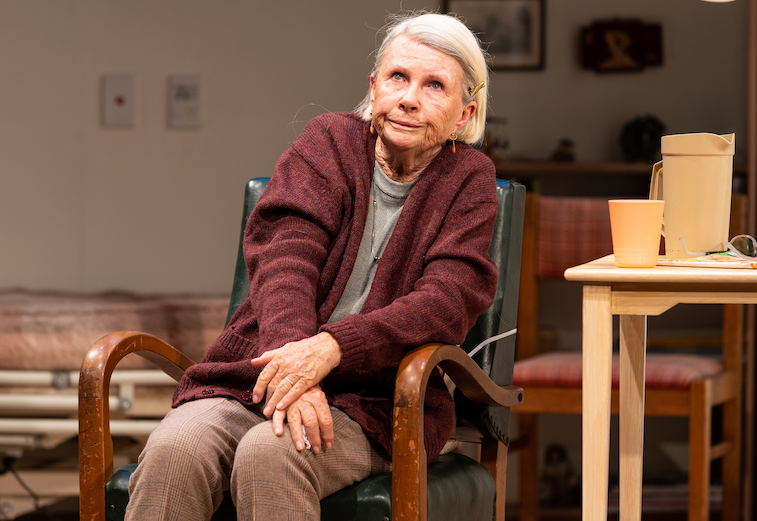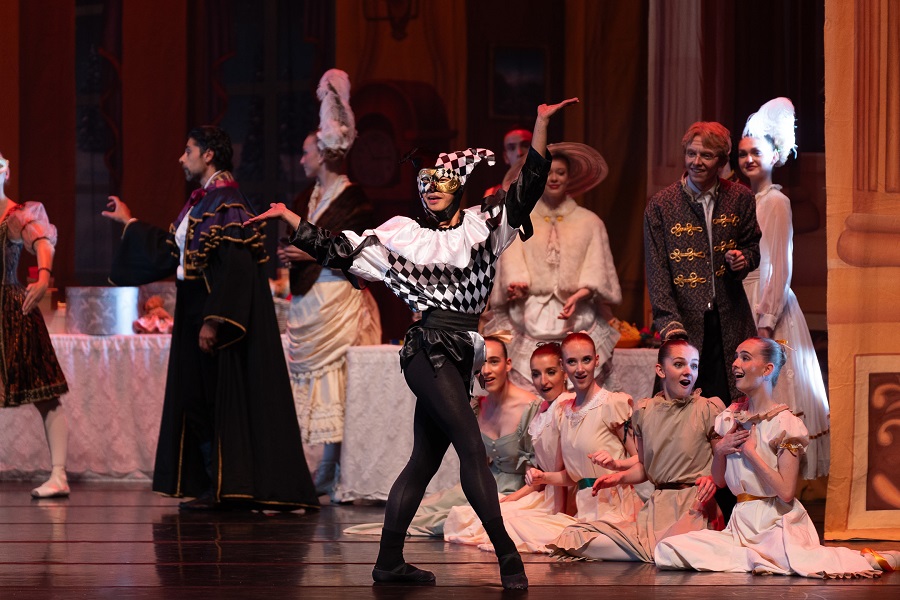
ACTOR Robyn Nevin agreed that “Brunhilde” suggested an Amazonian kind of image, but the character she’s about to perform in Canberra was in fact small and quite forgettable in appearance.
Nevin is talking of Brunhilde Pomsel, Joseph Goebbels’ secretary and the subject she portrays in Christopher Hampton’s play, “A German Life”, so potentially nerve-touching that it rates a warning from the theatre that it contains graphic historical footage distressing for some patrons.
Directed by Neil Armfield, the one-hander comes to Canberra after a sell-out season at the Adelaide Festival.
“Brunhilde was unassuming and diffident but very smart though, much more so than her opportunities allowed her to realise,” Nevin says.
Her story was typical of her generation, small in scale and not ambitious, and Nevin’s initial reaction to her words: “I always wanted to work in an office… bliss”, was amused incredulity.
“But she was also tough, she was in survival mode,” Nevin says, noting that after emerging from the rubble near Hitler’s bunker waving a white pillowcase to the approaching troops in April, 1945, she spent five years imprisoned by the Russians.
Hampton, in Nevin’s view, was the perfect person to take on this adaptation for the stage from a film documentary of the same name made by a group of Austrian filmmakers not long before Brunhilde’s death in January, 2017 at age 106.
“Hampton’s done a lot of translations and adaptations but he’s also been a big success in commercial shows like ‘Les Liaisons Dangereuses’ – he’s a stalwart of the British theatre,” Nevin says.
It is a choice piece for her and it’s only been done once before at the Bridge Theatre, London in 2019, with Maggie Smith in the role.
Armfield was in on it with her from the time Nevin showed him the script and they picked through the text, considering how much they could believe Brunhilde’s testimony and how resonant many of the things she described were today.
Covid restrictions saw the pair zipping around from Adelaide, where Armfield was working, to Patonga, where he lives, and the southern highlands, where Nevin resides.
“It was a different way of rehearsing, but because it was just Neil and me, it was possible,” she tells me, suggesting that the intensity may have enhanced the performance – “it’s in my muscle memory now”.
As an actor, she is well aware of the different ways audiences will take the story of Brunhilde’s life, her closeness to the Nazi leadership and her failure to admit guilt.
Herein lies the ambiguity of Hampton’s play. She died maintaining that she didn’t know what was going on, telling her Austrian interlocutors: “I had no idea what was going on. Or very little. No more than most people. So, you can’t make me feel guilty.”
But on the other hand, her jobs with the German Broadcasting Corporation and Joseph Goebbels would suggest she knew a great deal.
“She’s a human being and you can sense another level in her character,” Nevin says.
“Such an Inconsequential life, but Hampton has elevated it to be full of contradictions and ironies.
“There’s something so banal about this woman, when she talks about her life in retrospect, she talks of it as if it was a perfectly normal life and yet you know that it wasn’t.”
Inevitably, we note, Brunhilde’s life brings to mind Hannah Arendt’s famous statement about “the banality of evil” and Adolf Eichmann.
But Nevin can’t let that get in the way of her portrayal.
“If one is to play people with such a past, it just means you have to do them, bring them to life,” says.
“Sometimes as an actor you can’t avoid judgement, but I try to avoid those kinds of judgements – they are not useful and not relevant.
“It’s the purest type of storytelling when you have one person tell her life story, doing this has been very rewarding, if dark.”
In the end, as Nevin puts it: “The play’s the thing – I’m just the delivery girl.”
“A German Life”, The Playhouse, May 11-16. Book at canberratheatrecentre.com.au
Who can be trusted?
In a world of spin and confusion, there’s never been a more important time to support independent journalism in Canberra.
If you trust our work online and want to enforce the power of independent voices, I invite you to make a small contribution.
Every dollar of support is invested back into our journalism to help keep citynews.com.au strong and free.
Thank you,
Ian Meikle, editor




Leave a Reply